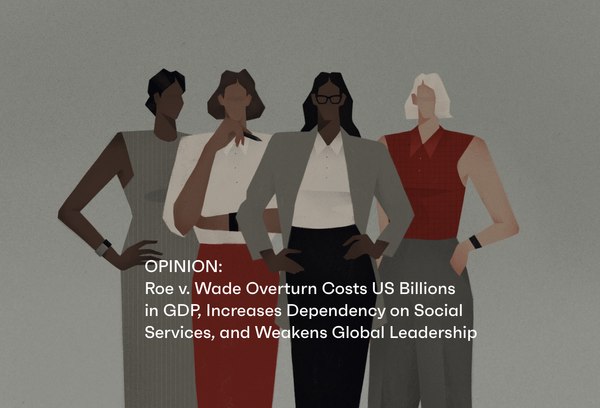During Pride Month, many companies facilitate conversations about their contributions to the LGBTQ+ community. Although discussions about pride should be fruitful, corporations often participate in them solely because it benefits their bottom line—a practice known as pinkwashing.
We created our family-building benefits solution with LGBTQ+ employees top of mind — for all 12 months of the year. Accordingly, we’re committed to discussing the experiences of LGBTQ+ employees year-round. But we acknowledge these topics are especially prescient this month. This June, LGBTQ+ employees celebrate pride while lawmakers in several states pass discriminatory legislation about gender-affirming care, contributing to concerns about a far less inclusive future.
In this uncertain environment, it’s pivotal for employers to prioritize their LGBTQ+ employees’ physical and mental health. Offering an appropriate fertility benefits package is a powerful step in the right direction.
LGBTQ+ employees face various fertility access challenges
The fertility journey is highly complicated. While this is true for heterosexual couples and single parents, LGBTQ+ employees face a specific and aggravated set of hurdles on their path to parenthood.
The cost barrier of assistive reproductive technology (ART)
ART, including in vitro fertilization (IVF), is a popular option for parents-to-be. However, these technologies are incredibly expensive out-of-pocket. One round of IVF typically costs about $14,000, and most recipients require multiple rounds to become pregnant.
Historically, LGBTQ+ parents opted for surrogacy programs, adoption, and donor insemination procedures to start their families. But IVF has skyrocketed in popularity for LGBTQ+ patients in recent years. In 2018, more than half of same-sex women looking to start families (57%) did so using ART. Meanwhile, IVF is currently the most popular form of family-building for same-sex male couples. In fact, same-sex IVF treatment has become so prominent that many clinics now offer reciprocal IVF cycles, which allow both parents to contribute equally to the family-building experience.
It’s heartening to see progress in the evolution of IVF. However, these solutions remain cost-prohibitive for many LGBTQ+ employees.
Discriminatory Legislation and Diagnoses
Existing legislation often adds to these economic hurdles. Many states do not mandate insurance coverage for fertility treatments unless infertility is proven through “unprotected sexual intercourse,” a definition that patently discriminates against LGBTQ+ individuals. Furthermore, even in states that require coverage, insurers often require “unsuccessful attempts” at conception before treatment is covered — an impossible scenario for many LGBTQ+ employees.
Stigmas in the Workplace and Medical Field
Nearly 25% of LGBTQ+ employees aren’t out at work, according to McKinsey. This is likely because the coming out process is emotionally taxing, particularly in exclusionary workplaces. Employers must work to address disparities in lived experiences by offering equitable accommodations and coverage for all employees.
Even organizations that offer family-building solutions can alienate LGBTQ+ employees if they neglect to provide fair coverage.
It’s important to remember many LGBTQ+ individuals face medical discrimination, with one in five LGBTQ+ individuals avoiding medical treatment after a bad experience. The key to providing equitable coverage? Working with high-quality care providers who value diversity and inclusion.
The Business Case for Fertility Benefits
Every employee — regardless of their sexual orientation or gender identity — should have equal access to the tools and resources needed to start a family. By offering inclusive fertility benefits, employers ensure LGBTQ+ employees are not disproportionately disadvantaged when starting a family.
Additionally, offering inclusive fertility benefits is good business year-round. These four offerings provide the following benefits.
- Better retention and attraction of top talent — A comprehensive benefits package including fertility benefits can be a powerful tool for attracting and retaining talent. It signals to current and prospective employees that the company values them and is willing to invest in their future. Moreover, when these benefits are tailored toward LGBTQ+ and diverse employees, it improves an organization’s ability to operate. Diverse companies earn 2.5x cash flow per employee compared to less diverse companies.
- Improved employee satisfaction and morale — Employees feeling their needs are recognized and valued contributes to higher job satisfaction, which in turn can lead to increased productivity. When these offerings are targeted toward inclusivity, diverse employees are more likely to feel valued and welcome.
- Increased competitive advantage — In a market where companies constantly strive to differentiate themselves, offering inclusive fertility benefits offers organizations a competitive edge. This is particularly true as Gen Z — the most diverse generation yet — enters the workforce.
- Promoting health and well-being — Fertility treatments can be stressful and emotionally draining. By offering inclusive fertility benefits, employers alleviate some of the financial stress associated with these treatments, promoting overall health and well-being among their employees.
These benefits will extend well beyond Pride Month to ensure your LGBTQ+ employees are cared for and valued 24/7, 365 days a year.
At Stork Club, access to critical reproductive healthcare is a basic human right. Join us on the mission to make reproductive care available for all. Are you interested in adding Stork Club to your team? Sign up to view a demo.




